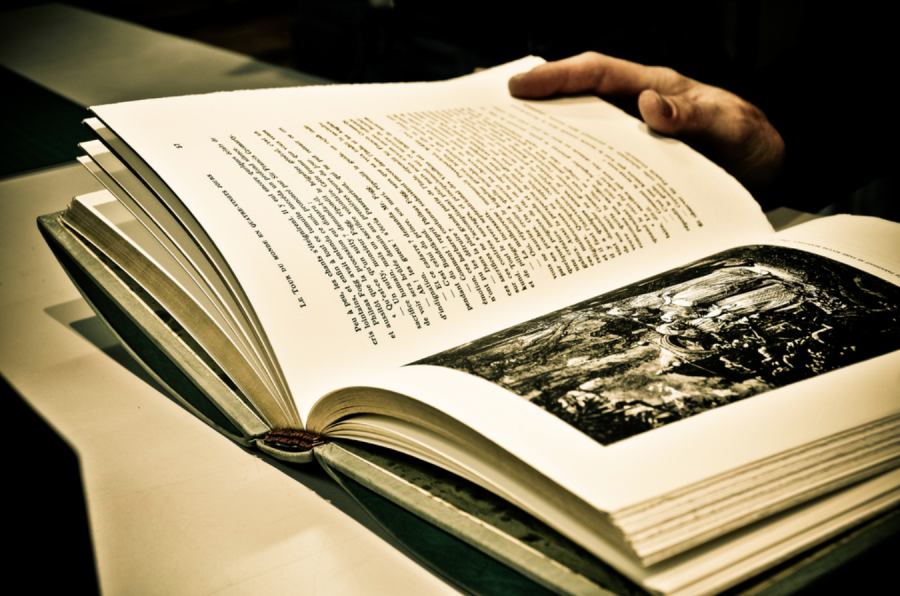At the beginning of last semester, I declared an English major. One of the first things I noticed was that many of the people in the major read the pieces they were assigned in class, but did not often read books on their own time. While I understood why this was the case during the academic year, it was strange to me that a person pursuing an English major would not be drawn to reading and writing beyond academia. English is not exactly a lucrative major, so a love of reading would be expected.
I had noticed a similar phenomenon in high school and upon coming to the University of Massachusetts. Many of the people I knew did not read books at all. While some of these people were plainly uninformed, many of them were knowledgeable and thoughtful. After some cursory research, I learned that these people were not unique. A quarter of Americans don’t read books at all and half read fewer than five books per year. But who can blame them? In a culture in which time is the ultimate commodity, few activities are less time efficient than reading. If your goal is to learn a specific skill, the internet has countless easily accessible educational resources and, if your objective is to be entertained, there are thousands of videos available online. Many people will concede that books (much of the time) contain greater depth than YouTube tutorials, but the time/depth trade off certainly seems worthwhile. In the time it takes to read a complex book, most people can watch a dozen episodes of a television show.
So, is it a problem that so many people don’t read books? Is there something about reading books that has intrinsic value? I think so, but probably not for the reasons you expect. Because, while books are great educational resources, YouTube videos and podcasts are also perfectly valid ways to learn. It is not the knowledge that we lack (though we could, of course, do with a bit more of that,) but the focus that reading books allows us to cultivate. Reading a book provides a person with a unique opportunity for a certain type of emotional and intellectual engagement; a type of engagement which private life and public discourse need more of today.
Books are platforms that allow individuals to flesh out abstract thoughts. Certain ideas and experiences can only be communicated with adequate time and space, and books provide individuals with this space. There are other forms of media that allow complex forms of expression, but few that allow individuals to articulate themselves in such explicit, expansive ways.
Compare a book with a Facebook newsfeed. A given Facebook thread is a conversation with countless participants. Every idea posed can be (and often is) affirmed and/or refuted within moments of its assertion. It is easy to see how this is not conducive to thoughtful expression.
The internet is also a platform on which simplicity is necessary for effective communication. One could post a novel or a thesis on Facebook, but there is a reason TL;DR (too long; didn’t read) is common slang. On the internet, many people will not read things that exceed a certain length. This is not a good thing. While there is a time and space for the sort of quick conversation that social media fosters, these conversations often obfuscate complex thoughts. In a world in which the President of the United States communicates through 280-character Tweets, there is nothing we need more than a space for complex thought. Reading books allows us to enter this space.
In addition, most people will find reading to be somewhat fulfilling, whether or not they imagine they will. This is precisely because it is a challenging activity that requires concentration. If you don’t believe me, then perhaps you’ll believe Mihaly Csikszentmihalyi, the Hungarian psychologist who introduced the concept of flow. Csikszentmihalyi defines flow as “a state in which people are so involved in an activity that nothing else seems to matter; the experience is so enjoyable that people will continue to do it even at great cost, for the sheer sake of doing it.” He claims that these “flow experiences” comprise many of the best moments of our lives. Complete absorption in an intriguing, thought-provoking text is an ideal way to enter this state.
The truth is that reading books is antithetical to many of our values, whether or not we believe that it is. It involves creating the mental space to attempt to understand another person’s ideas and experiences. It involves sacrificing instant gratification for depth. It involves trading time for true engagement. It is precisely because of this that we need to read more, because if we don’t take the time to explore what other people have thought about their lives, how can we begin to think about our own lives? We may not remember most of the things we read, but the things we remember will matter, and the very act of reading books can and will change our lives.
Jonah Dratfield is a Collegian columnist and can be reached at [email protected].



















Meg • Mar 5, 2018 at 9:34 pm
Fantastic piece Jonah. It’s sad that so many don’t read for pleasure anymore. Hopefully you will get some to return to the printed book!
John aimo • Mar 5, 2018 at 1:35 pm
I thought the book meant the bible. Everyone should read the bible, praise the lord!
LIZ • Mar 5, 2018 at 12:09 pm
YOU MAKE THIS LIBRARY WORKER PROUD!